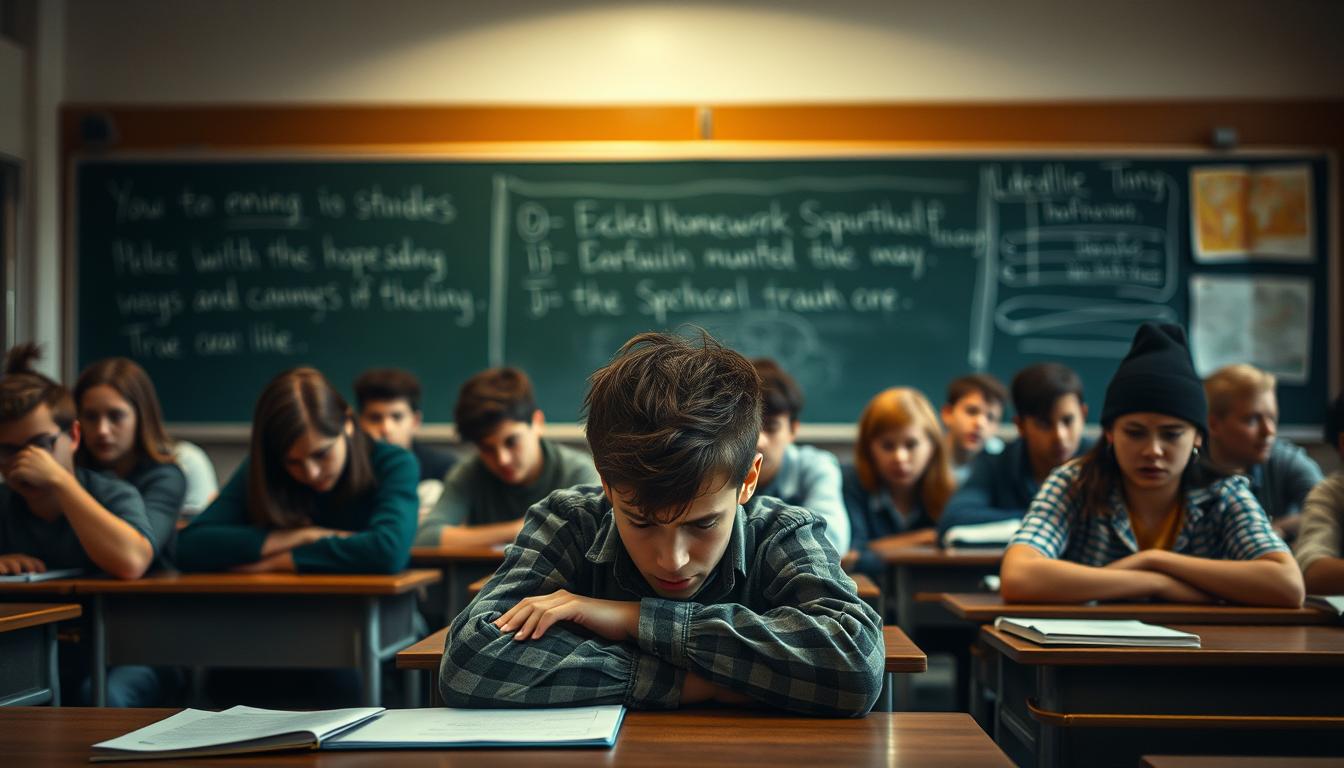In the ever-evolving landscape of education, it’s crucial to understand what students genuinely dislike about their educational experiences. After spending approximately 13 years in school—equating to around 7 years of full-time work before graduation—many students harbor significant grievances that may not always be visible to educators and policymakers alike. Recent studies, including insights from the Program for International Student Assessment, reveal that American adolescents are stagnating in areas such as reading and math proficiency, sparking a pressing need for dialogue and change.
You might be surprised to learn that nearly 75 percent of high school students report feeling negatively about school, according to a Yale study. This discontent is often rooted in various factors that contribute to student dissatisfaction with education. Students with unique challenges, such as learning disabilities, often find the academic environment particularly exhausting and taxing. While traditional educational methods emphasize breadth over depth, this approach can sometimes leave students feeling disengaged, as they are taught subjects like plant parts without regard to their interests.
The psychological weight of high expectations weighs heavily on many learners; for example, some are expected to master multiplication in just four days. This unrealistic standard often causes undue stress, especially among students with ADHD, who must navigate frequent transitions and a packed curriculum. For many, these high demands lead to feelings of frustration and disenchantment with school life.
Collecting feedback from nearly 300 student comments has unveiled a plethora of passionate perspectives on what needs to change in the educational system. Listening to student voices is paramount as we strive for a more inclusive and supportive educational environment. A clearer understanding of the key issues at play can pave the way towards a successful and reformative approach that addresses the core reasons students dislike school.
Understanding Student Dissatisfaction with Education
Students today face numerous obstacles within the education system, contributing to a growing sense of dissatisfaction. This disconnect often stems from unaddressed student frustrations, leading to a variety of resistance behaviors in the classroom. Engaging with these insights can shed light on improving student experience in education and better support learners.
Key Findings on Student Experience
Research has unveiled significant factors impacting student engagement and satisfaction. One study involving 600 college students revealed that they expressed resistance through 19 different techniques. Surprisingly, most resistance remained passive, often unnoticed by instructors. Instructors’ misbehaviors greatly irritated students, with common grievances including sarcasm, unpreparedness, and favoritism. These behaviors frequently led to heightened student frustration with the education system, creating barriers to effective learning environments.
Importance of Listening to Student Voices
Acknowledging student perspectives on education is vital for creating an enriching academic atmosphere. Students have valuable input that can guide necessary changes. For instance, insights from 20 interviews highlighted that students felt more empowered when their concerns were genuinely heard. Fostering open communication channels can significantly impact student satisfaction and help to align educational practices with their needs and expectations.
| Evidence of Student Frustration | Examples |
|---|---|
| Passive Resistance Techniques | Students often disengage silently rather than confront issues directly. |
| Instructor Misbehaviors | Sarcasm, being unprepared, and unfair testing provoke student resistance. |
| Student Empowerment | Honest complaints made participants feel heard and satisfied. |
Addressing student dissatisfaction holds the key to enhancing educational outcomes. By prioritizing student experience and perspectives, institutions can create learning environments that foster engagement and success.
What Do Students Really Hate About Education?
When exploring the frustrations students face in education, two major issues surface: intense pressure and stress, alongside a lack of relevance in the curriculum. These challenges in traditional education systems not only affect student satisfaction but also impede their overall engagement and well-being. By paying attention to student feedback on schooling, we can begin to understand the root causes of this dissatisfaction.
Intense Pressure and Stress
Many students report overwhelming levels of stress due to excessive homework and rigid learning structures. In some cases, students are expected to complete two to three hours of homework each night, creating a sense of burnout that adversely affects their mental health. The intense academic pressure leaves students feeling anxious and exhausted, which deeply impacts their overall educational experience. As educational models often persist in promoting outdated methodologies, students find themselves feeling unprepared and disillusioned with the traditional learning approach.
Lack of Relevance in Curriculum
In addition to feeling overwhelmed, students voice concerns about the lack of relevance in what they are taught. As you climb higher in grade levels, the opportunities for autonomy diminish, leading to a perception that much of the curriculum is disconnected from real-life applications. Students often wish for courses that align more closely with their interests, yet scheduling constraints frequently deter true choice in elective classes. This gap between educational content and practical relevance creates a significant source of disengagement, ultimately hindering efforts in enhancing student engagement in education.
